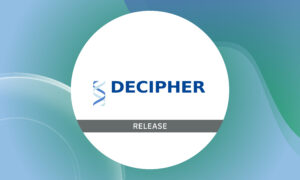
DECIPHER v11.32 released
DECIPHER v11.32 introduces new improvements including integration of gnomAD v4.1 sequence variant data across the website and refined visualisation of splice region variants.
2025
updates-from-data-resources
Showing results out of

DECIPHER v11.32 introduces new improvements including integration of gnomAD v4.1 sequence variant data across the website and refined visualisation of splice region variants.
2025
updates-from-data-resources

A new EMBL-EBI platform reduces bioinformatics barriers to applying polygenic scores in disease risk research.
2025
updates-from-data-resources

Ensembl 114 introduces the updated MANE set v1.4 for GRCh38, many new and updated genomes, and more.
2025
updates-from-data-resources

DECIPHER v11.31 introduces new data visualisations for Human Developmental Cell Atlas expression, cancer case frequency data, and curated ear disorder information.
2025
updates-from-data-resources

Supported by EMBL services, students Misha Hegde & Mia Maurer have identified a previously unknown bacteriophage that targets Rhizobium rhizogenes, a pathogen harming crops. Using cutting-edge imaging and DNA sequencing at EMBL Heidelberg, they are exploring its potential as a natural alternative…
SCIENCE & TECHNOLOGY2025
science-technology

The new GA4GH refget Sequence Collections helps streamline reference genome management.
2025
technology-and-innovation

The Data Hubs Portal is a new interface that enables users to setup and manage pre-release and/or public Data Hubs at the ENA.
2025
updates-from-data-resources

EMBl-EBI’s new building enables the translation of the institute’s data management expertise into solutions for global challenges
LAB MATTERS2025
announcementslab-matters
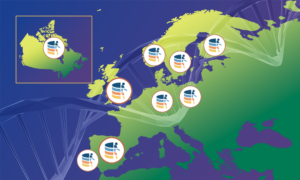
The Federated European Genome-phenome Archive (FEGA) has expanded its network and continues to evolve by embracing emerging technologies.
SCIENCE & TECHNOLOGY2025
science-technologytechnology-and-innovation

New EMBL-EBI project explores the use of a concept developed in aerospace engineering to support rare disease research, diagnosis, and treatment.
PEOPLE & PERSPECTIVES2025
people-perspectivestechnology-and-innovation

The Gene2Phenotype (G2P) website has a fresh new look and now supports more detailed gene-disease mechanism information.
2025
updates-from-data-resources

African scientists awarded the 2024 EMBL-UNESCO residencies share their experience in bioinformatics and virology, emphasising the power of connections and knowledge exchange.
CONNECTIONSPEOPLE & PERSPECTIVES2025
connectionspeople-perspectives

The Solve-RD project standardises genomic and clinical data across Europe to support rare disease research.
EMBL ANNOUNCEMENTS2025
announcementsembl-announcements

Tim Cezard talks about the importance of genetic variation data and the move from biology to infrastructure
PEOPLE & PERSPECTIVES2025
people-perspectivesperspectives

Study identifies a novel mechanism driving osteosarcoma and provides insights to help predict patient outcomes.
SCIENCE & TECHNOLOGY2025
research-highlightsscience-technology

The v11.29 DECIPHER release is out now. Find out about the new features and improvements.
2025
updates-from-data-resources

EMBL and its partners have received funding from the European Commission for two new Twinning Projects, which will build expertise and research capacity in its member states.
CONNECTIONS2024
connections
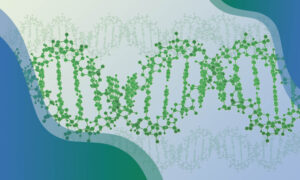
Right from the early days of DNA sequencing, EMBL’s scientists have been instrumental in helping the world understand, decode, archive, and manipulate genomes at scale and across many branches of the evolutionary tree, a task they continue to excel at today.
SCIENCE & TECHNOLOGY2024
science-technology
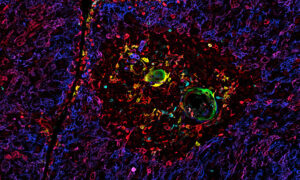
The most comprehensive map of the developing human thymus sheds light on how immune responses are built and maintained during early life
2024
announcements

Researchers uncover that DNA changes that cause cancer drug resistance can be grouped into four categories, and identify possible new therapeutic targets.
2024
announcements

EMBL-EBI and colleagues from other 11 institutes commit to pathogen data sharing project.
2024
announcements
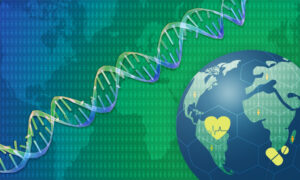
Addition of data from more diverse populations to the Polygenic Score (PGS) Catalog and a new software tool for PGS calculation could help produce more equitable disease risk predictions.
SCIENCE & TECHNOLOGY2024
science-technologytechnology-and-innovation
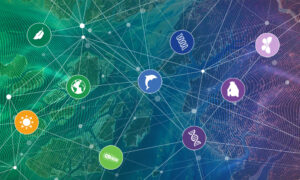
EMBL-EBI data resources help advance biodiversity and climate change research by enabling scientists to study species interactions, evolutionary processes, ecosystem health, and more.
SCIENCE & TECHNOLOGY2024
science-technologytechnology-and-innovation

Using machine learning to analyse the genetic factors behind early clinical trial termination, researchers find a link between genetic evidence and trial outcome.
SCIENCE & TECHNOLOGY2024
research-highlightsscience-technology

The v11.27 DECIPHER release is out now. Find out about the new features and improvements.
2024
updates-from-data-resources
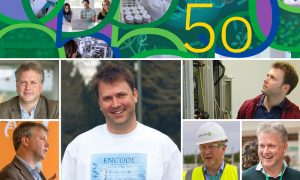
Ewan Birney reflects on his time at EMBL and the development of the organisation through a commitment to open data and nurturing scientific talent.
PEOPLE & PERSPECTIVES2024
people-perspectivesperspectives

The new Team Leader for Human Genomics at EMBL-EBI shares how curiosity and maths shaped her career and what it takes to be a community builder.
PEOPLE & PERSPECTIVES2024
people-perspectivesperspectives
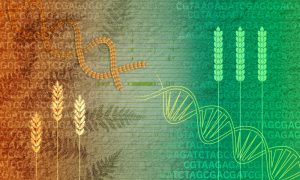
Researchers explore genetic diversity found in ancient environmental DNA to help modern agricultural practices.
EMBL ANNOUNCEMENTS2024
announcementsembl-announcements

Blood stem cells from healthy people carry major chromosomal alterations, a study in Nature Genetics by researchers at the Max Delbrück Center and the European Molecular Biology Laboratory (EMBL) finds. The discovery suggests that we are all genetic mosaics, which may contribute to ageing-related…
SCIENCE & TECHNOLOGY2024
science-technology

The latest DECIPHER release includes AlphaMissense scores, links to the Open Targets Platform and more.
2024
updates-from-data-resources

Large-scale study uses data from Danish health registries to predict individual risks of developing cancer
SCIENCE & TECHNOLOGY2024
research-highlightsscience-technology
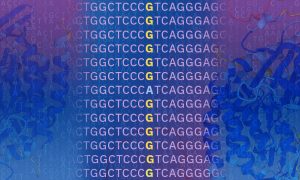
The integration enables researchers to easily access AI-generated scores estimating how likely genetic variants are to be pathogenic
2024
technology-and-innovation

Ensembl 112 and the corresponding release of Ensembl Genomes 59 has released. This includes exciting new fish species, many more drosophila species and new VEP updates.
2024
updates-from-data-resources

MSD joins as the latest partner in the Open Targets consortium, enhancing the initiative’s collaborative efforts in drug discovery.
EMBL ANNOUNCEMENTS2024
announcementsembl-announcements

Experts in quantum computing and genomics to develop new methods and algorithms to process biological data.
SCIENCE & TECHNOLOGY2024
announcementsscience-technology
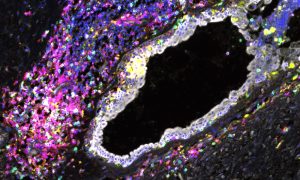
New study uncovers the potential of immunotherapy in preventing breast cancer and creates the openly available Human Breast Cell Atlas.
SCIENCE & TECHNOLOGY2024
research-highlightssciencescience-technology

The SARS-CoV-2 Data Hubs are a set of tools coupled with infrastructure that support four components: the submission, analysis, presentation and visualisation of SARS-CoV-2 raw read data, and its resulting analyses. What makes Data Hubs attractive is a unique set of features: A new publication in…
2024
updates-from-data-resources
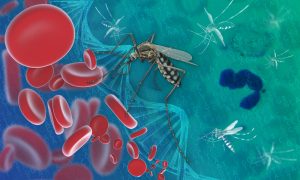
Plasmodium falciparum, a malaria parasite, uses gene conversion to produce genetic diversity in two surface protein genes targeted by the human immune system.
SCIENCE & TECHNOLOGY2024
announcementssciencescience-technology

An international team of researchers aim to combine social determinants of health with genomics, immune profiling, and exposomics data to tackle cancer inequities at an unprecedented scale.
SCIENCE & TECHNOLOGY2024
announcementssciencescience-technology

The Federated European Genome-phenome Archive (FEGA) marks a significant milestone with the release of its first datasets.
2024
announcements

Version 11.24 of DECIPHER introduces a new ACMG/AMP pathogenicity interface for sequence variant predictions, displays ClinGen Variant Curation Expert Panel recommendations on gene pages, and updates ACMG secondary finding information to v3.2.
2024
updates-from-data-resources

Jacqueline shares her experience of EMBL's international PhD programme.
LAB MATTERSPEOPLE & PERSPECTIVES2024
lab-matterspeople-perspectives

The Ensembl 111 features a range of new Ensembl VEP plugins and updated agricultural, fish, plant and metazoa species.
2024
updates-from-data-resources
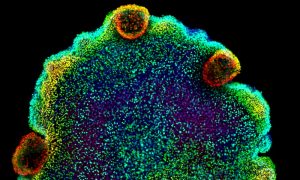
A $3.8 million grant from the Gordon and Betty Moore Foundation will help researchers lay groundwork for the Biodiversity Cell Atlas.
2024
announcements

Approximately 300 scientists met up at EMBL Heidelberg to unravel the centuries-old puzzle of cancer through the modern lens of genomics.
SCIENCE & TECHNOLOGY2024
eventsscience-technology
Researchers reveal that healthy lung development hinges on immune-epithelial crosstalk, with implications for respiratory diseases.
SCIENCE & TECHNOLOGY2023
research-highlightsscience-technology
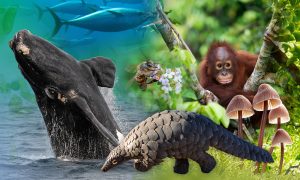
The new initiative brings together genomic data from various biodiversity projects to aid conservation and biodiversity efforts.
SCIENCE & TECHNOLOGY2023
announcementssciencescience-technology

Two new data portals are set to support infectious disease monitoring and research across Europe; the Swedish Pathogens Data Portal and the Netherlands COVID-19 Data Portal.
2023
updates-from-data-resources

Leading charities Children with Cancer UK and Cancer Research UK will co-fund a major £5.5 million research programme to advance precision medicine for relapsed childhood cancers.
2023
announcements

Where to start when thinking about the sustainability of informatics projects
2023
perspectives

Large language models are changing the way we carry out scientific data curation, annotation, and research, setting the stage for a more efficient understanding of scientific literature
EMBLetc2023

EMBL’s Genomics Core Facility provides end-to-end support to researchers across Europe and beyond and stands at the forefront of scientific breakthroughs.
EMBLetc2023

Scientists from the MELIS department at UPF and EMBL Barcelona have organised a symposium to discuss the work of the visionary Catalan scientist Pere Alberch, who passed away 25 years ago.
CONNECTIONS2023
connectionsevents

The Lees group develops a tool that can scale up bacterial genome annotation.
2023
research-highlights

PhD student Valentina Lorenzi is using single-cell sequencing data to create a map of the developing human reproductive system.
LAB MATTERSPEOPLE & PERSPECTIVES2023
lab-matterspeople-perspectivesperspectives
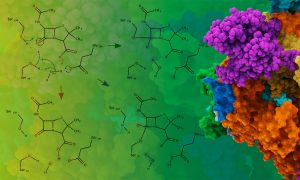
Enzymes constitute a large fraction of genomes – 20% in humans – which makes them a very important part of life. Despite decades of studies and a rich literature dedicated to understanding the reaction mechanisms of enzymes, the rules of enzyme catalysis are still not fully clear. A new…
SCIENCE & TECHNOLOGY2023
science-technologytechnology-and-innovation

David Hulcoop discusses how his experience bridging organisational cultures will help address critical challenges in drug discovery and target selection at Open Targets.
LAB MATTERSPEOPLE & PERSPECTIVES2023
announcementslab-matterspeople-perspectives

New research improves understanding of the molecular mechanisms behind why some cancers respond to immunotherapy and others don't.
SCIENCE & TECHNOLOGY2023
research-highlightssciencescience-technology

SComatic enables researchers to link genotype to phenotype using only single-cell profiling data
SCIENCE & TECHNOLOGY2023
research-highlightssciencescience-technology

By upskilling researchers on bioinformatics skills and tools, EMBL alumna Emily Perry is helping to make genomic medicine more accessible.
LAB MATTERSPEOPLE & PERSPECTIVES2023
lab-matterspeople-perspectivesperspectives

The GA4GH standard refget quietly helps decipher millions of genomes sequenced worldwide, and it just got better.
2023
technology-and-innovation

Ensembl 100 release brings exciting updates, such as the addition of regulation data to 5 animal genomes studied extensively in agriculture.
2023
updates-from-data-resources

Construction begins on EMBL-EBI's new building named after Janet Thornton.
EMBL ANNOUNCEMENTSLAB MATTERS2023
announcementsembl-announcementslab-matters
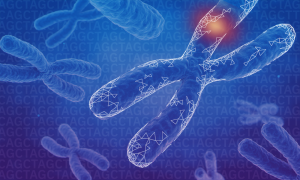
Closer collaborations with EMBL-EBI data resources set to further develop and grow this unique rare disease platform.
EMBL ANNOUNCEMENTS2023
announcementsembl-announcementsscience

Enabling researchers worldwide to share and analyse pathogen data generated across the world
SCIENCE & TECHNOLOGY2023
sciencescience-technologytechnology-and-innovation
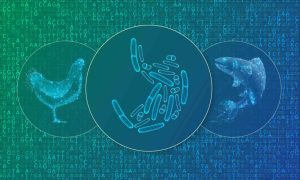
HoloFood, the first consistent collection of multiomic data about chicken and salmon gut microbiomes, set to enable the development of better animal feeds.
SCIENCE & TECHNOLOGY2023
sciencescience-technologytechnology-and-innovation

EMBL-EBI data resources are being used to deliver thousands of genetic diagnostics to patients every month.
SCIENCE & TECHNOLOGY2023
perspectivessciencescience-technology

A new tool for the interpretation of missense variation in humans – ProtVar – will help enable drug discovery.
SCIENCE & TECHNOLOGY2023
sciencescience-technologytechnology-and-innovation

Postdoctoral researcher Carolin Sauer is leveraging long-read sequencing to develop new detection methods for various cancers.
LAB MATTERSPEOPLE & PERSPECTIVES2023
lab-matterspeople-perspectivesresearch-highlights

BioImage Archive Team Leader Matthew Hartley shares his experience and tips for people interested in managing a bioinformatics core facility.
2023
technology-and-innovation
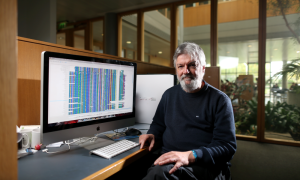
Desmond Higgins, 2023 Lennart Philipson Award winner, discusses his time at EMBL and his research developing sequence alignment tools.
EMBLetc2023
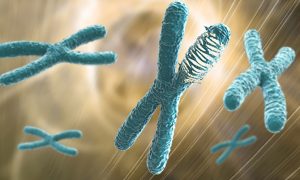
Understanding chromothripsis offers insights into how cancer develops.
SCIENCE & TECHNOLOGY2023
research-highlightsscience-technology

The human pangenome – one of the most complete collections of genome sequences released so far – captures rich human diversity.
SCIENCE & TECHNOLOGY2023
announcementssciencescience-technology

EMBL-EBI is making a key contribution to a historic effort to understand the function of every human gene
LAB MATTERSSCIENCE & TECHNOLOGY2023
announcementslab-mattersscience-technology
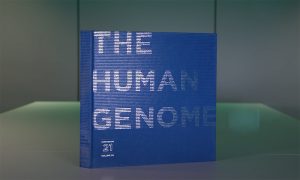
On the 20th anniversary of the Human Genome Project, we look back at its history, wonder and potential.
LAB MATTERSPEOPLE & PERSPECTIVES2023
lab-matterspeople-perspectivesperspectives

WormBase ParaSite release 18 adds largest number of new genomes and annotations since launch, as well as full integration with AlphaFold.
SCIENCE & TECHNOLOGY2023
science-technologyupdates-from-data-resources

Scientists have the technology to edit the human genome. But when should they, and who contributes to these decisions?
LAB MATTERSPEOPLE & PERSPECTIVES2023
lab-matterspeople-perspectivesperspectives

EMBL-EBI researchers have developed a new tool capable of performing state-of-the-art phylogenetic inference on larger datasets than previously thought possible.
SCIENCE & TECHNOLOGY2023
research-highlightssciencescience-technology
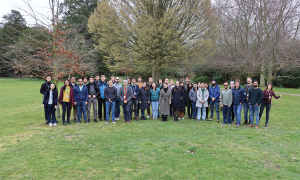
Darwin Tree of Life project improves bioinformatics tools for biodiversity data analysis
CONNECTIONS2023
connectionstechnology-and-innovation
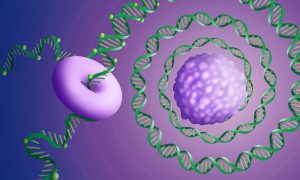
Using Oxford Nanopore long-read sequencing, EMBL scientists sequenced a primary childhood brain tumour known as a medulloblastoma, uncovering a novel complex mutation pattern.
2023
science
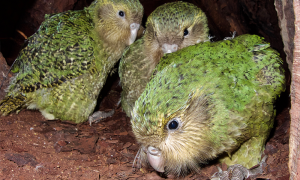
Using long-read sequencing and machine learning approaches, EMBL alumna Lara Urban is making a difference in the field of One Health.
2023
perspectives
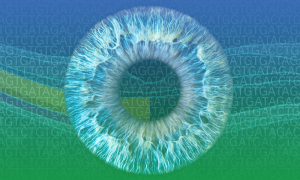
EMBL-EBI researchers use UK Biobank data to uncover new information about rare diseases of the eye.
2023
research-highlightsscience
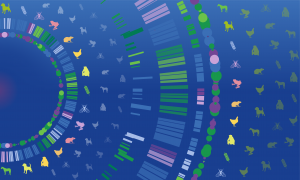
As major biodiversity projects ramp up, EMBL-EBI enables genomic data sharing for all species.
2023
perspectivesscience

EMBL-EBI’s Software Development and Operations team is delighted to announce the launch of a brand-new Job Dispatcher website, currently in development. The updated website provides a landing page for the Job Dispatcher services, making it easier for users to find and navigate services…
2023
updates-from-data-resources

Jo McEntyre talks about data services, open data and a new era for research assessment.
LAB MATTERSPEOPLE & PERSPECTIVES2023
lab-matterspeople-perspectivesperspectives

Group Leader Hanh Vu studies ‘immortal’ flatworms that can grow and de-grow to understand better factors that determine organisms’ sizes.
LAB MATTERSPEOPLE & PERSPECTIVES2023
lab-matterspeople-perspectives

Latest Ensembl and Ensembl Genomes releases bring updates to donkey and horse assemblies, and lots of new plants and metazoa.
2023
updates-from-data-resources
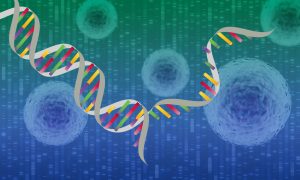
Genomic sequencing and big data analysis are two novel technologies driving researchers’ understanding of the complexities of cancer.
2023
perspectivesscience

Open Targets is using artificial intelligence and machine learning to identify and prioritise drug targets.
SCIENCE & TECHNOLOGY2023
sciencescience-technologytechnology-and-innovation
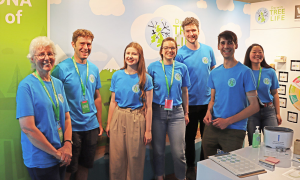
We look back through some of the 2022 highlights from the Darwin Tree of Life project.
SCIENCE & TECHNOLOGY2023
perspectivessciencescience-technology

Rob Finn, one of the co-chairs of the Microbial Ecosystems theme, discusses his work, the challenges of multidisciplinary research, and how the theme is already helping to promote the exchange of scientific ideas.
LAB MATTERSPEOPLE & PERSPECTIVES2023
lab-matterspeople-perspectives
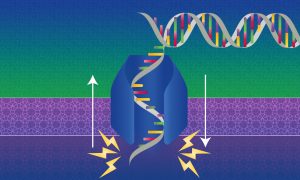
A new method developed by EMBL-EBI researchers helps to streamline nanopore sequencing in real-time.
SCIENCE & TECHNOLOGY2023
research-highlightssciencescience-technology
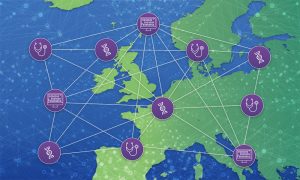
EMBL-EBI supports new European Commission project set to support the use of genomics in research and healthcare.
2022
announcementsscience

An ambitious project to sequence the genomes of all known species of euglenoids will drive research on biofuels and sustainable foods.
2022
announcements

Open Targets announces that Genentech will become the seventh partner in the drug discovery and validation consortium.
2022
announcementsscience

Our experts discuss the importance of open science for food security and preserving global biodiversity.
2022
perspectivesscience
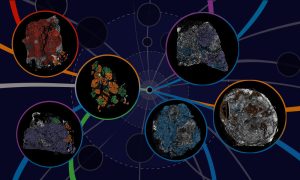
Researchers have created a tool that maps in previously unseen detail how breast cancer develops and spreads.
2022
research-highlightsscience

We are pleased to announce the release of Ensembl 108, and the corresponding release of Ensembl Genomes 55 featuring changes in the human default tracks, new genomes in Ensembl Plants and Ensembl Metazoa, and the addition of mitochondrial annotation for Tasmanian devil. Genome assemblies and…
2022
updates-from-data-resources

Data continues to be available in BioStudies.
2022
updates-from-data-resources
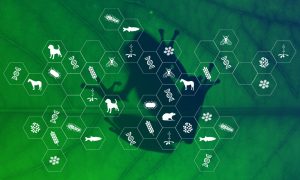
European experts gather to launch a project that aims to characterise and conserve life on Earth using DNA data.
2022
announcementsscience

The Federated EGA is set to improve access to sensitive human data in a safe and secure way.
CONNECTIONS2022
announcementsconnectionsscience

Dieter Schwarz Foundation renews 3-year funding to EMBL for the EMBL | Stanford Life Science Alliance, a unique international collaboration bringing together researchers from the two leading institutions to develop transformative technologies and accelerate biomedical research.
CONNECTIONSLAB MATTERS2022
connectionslab-matters
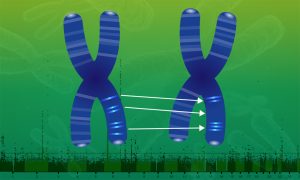
A new method for the robust analysis of copy number variation and used UK Biobank data to identify links between genome and disease.
SCIENCE & TECHNOLOGY2022
research-highlightssciencescience-technology
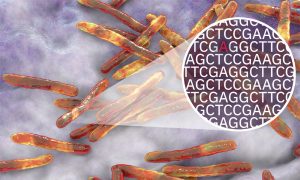
International consortium analyses the genetic sequences and antibiotic susceptibility of 10,000 global Mycobacterium tuberculosis isolates.
SCIENCE & TECHNOLOGY2022
research-highlightssciencescience-technology
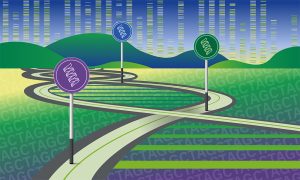
Scientists identify previously unexplored gene segments to be added to human genome databases.
SCIENCE & TECHNOLOGY2022
research-highlightssciencescience-technology

The Ensembl 107 release contains updates to regulatory annotations and updated vertebrate and metazoan species.
2022
updates-from-data-resources

Using powerful data visualisation and interactive search results across datasets allows users to explore hypotheses across a range of metadata, and discover new insights backed by expertly curated, consistently reanalysed single cell sequencing data. Searching for metadata, allows a powerful…
2022
updates-from-data-resources
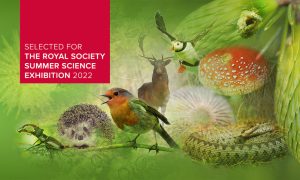
A closer look at how genome sequencing is helping us protect biodiversity and our latest public engagement activities
2022
announcements
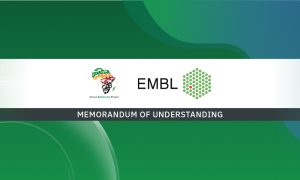
The African BioGenome Project and EMBL have signed a Memorandum of Understanding to support each other in building genomics and bioinformatics capacity across Africa
CONNECTIONSLAB MATTERS2022
announcementsconnectionslab-matters
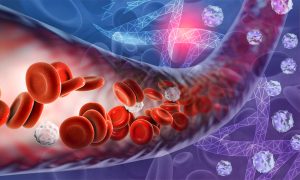
Researchers discover how DNA mutations change blood cell production and how this relates to ageing and cancer development.
SCIENCE & TECHNOLOGY2022
research-highlightssciencescience-technology
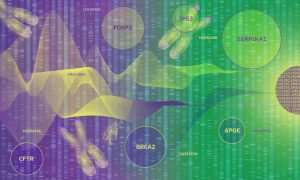
Researchers in the Ensembl team are making the most of machine learning methods to speed up genome annotation pipelines
SCIENCE & TECHNOLOGY2022
sciencescience-technologytechnology-and-innovation

Fergal Martin discusses the importance of open access data and his work in different biodiversity initiatives
LAB MATTERSPEOPLE & PERSPECTIVES2022
lab-matterspeople-perspectives

Janet Thornton, the inaugural winner of the FEBS Journal Open Science Award, explains the importance and impact of open science.
LAB MATTERSPEOPLE & PERSPECTIVES2022
lab-matterspeople-perspectivesperspectives

Peter Harrison discusses the importance of data accessibility and his passion for biodiversity and agricultural genomics.
LAB MATTERSPEOPLE & PERSPECTIVES2022
lab-matterspeople-perspectives

Ewan Birney discusses the input of both genetics and our environment in making us who we are
LAB MATTERS2022
lab-mattersperspectives
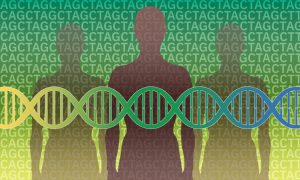
Researchers from the MANE collaboration bring you the most comprehensive human genome annotation dataset to date.
SCIENCE & TECHNOLOGY2022
research-highlightssciencescience-technology

John Lees joins EMBL-EBI as a Group Leader in Pathogen informatics and modelling.
LAB MATTERSPEOPLE & PERSPECTIVES2022
lab-matterspeople-perspectives

Researchers lay out a set of principles for open genomic data sharing or pathogens
SCIENCE & TECHNOLOGY2022
perspectivesscience-technology

Zamin Iqbal and his team are working with researchers all over the globe to help put a stop to Tuberculosis
SCIENCE & TECHNOLOGY2022
perspectivessciencescience-technology

Scientists urge the adoption of a sensible international policy for digital sequence information.
SCIENCE & TECHNOLOGY2022
announcementssciencescience-technology

Open Targets, a consortium focused on drug target identification, prioritisation, and validation, announced today that Pfizer has joined as a partner.
CONNECTIONS2022
announcementsconnectionsscience

An exploration of where in the world genomics methods are applied and where the data are used.
SCIENCE & TECHNOLOGY2022
perspectivessciencescience-technology
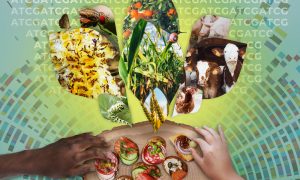
How genomics, open data, and multidisciplinary science can improve food security.
SCIENCE & TECHNOLOGY2021
sciencescience-technology

The Darwin Tree of Life project is an unprecedented initiative sequencing 70,000 species
SCIENCE & TECHNOLOGY2021
sciencescience-technology

Largest in-depth analysis of genomic data tracks the spread of SARS-CoV-2 lineages in England.
SCIENCE & TECHNOLOGY2021
sciencescience-technology

The scientific response to COVID-19 relied on rapid data sharing to understand the biology, epidemiology, transmission, and evolution of the SARS-CoV-2 virus. To meet this need, EMBL-EBI built the European COVID-19 Data Platform in conjunction with the European Commission, the European Open…
2021
technology-and-innovation

A research collaboration used machine learning to map tumour molecular make-up, potentially paving way to more customised cancer treatment.
SCIENCE & TECHNOLOGY2021
sciencescience-technology
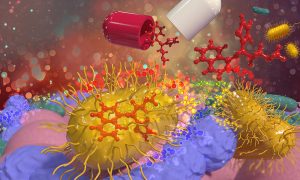
A new collaborative study led by EMBL group leaders Kiran Patil, Nassos Typas, and Peer Bork has found that common medications accumulate in human gut bacteria. This process reduces drug effectiveness and affects the metabolism of common gut microbes, thereby altering the gut microbiome.
SCIENCE & TECHNOLOGY2021
sciencescience-technology

EMBL welcomes Sarah Dyer, the new Non-Vertebrate Genomics Team Leader at EMBL-EBI.
LAB MATTERSPEOPLE & PERSPECTIVES2021
lab-matterspeople-perspectives
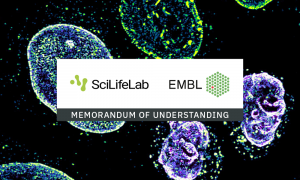
EMBL and the Swedish Science for Life Laboratory sign agreement to advance science together.
CONNECTIONSLAB MATTERS2021
connectionslab-matters

The largest in-depth analysis of genomic surveillance data mapping out the dynamics of 62 lineages of the SARS-CoV-2 virus.
SCIENCE & TECHNOLOGY2021
sciencescience-technology
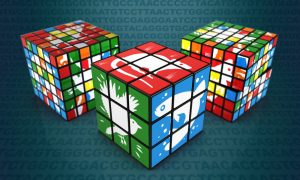
Researchers reveal the best technology for assembling reference genomes.
SCIENCE & TECHNOLOGY2021
sciencescience-technology
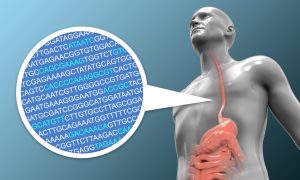
The Gerstung Group at EMBL-EBI and collaborators have developed a statistical model that analyses genomic data to predict whether a patient has a high or low risk of developing oesophageal cancer.
SCIENCE & TECHNOLOGY2020
sciencescience-technology

An international team of scientists involving Ewan Birney's group has investigated the function of a complex mesh of muscle fibres that line the inner surface of the heart.
SCIENCE & TECHNOLOGY2020
sciencescience-technology

A global team of researchers including the Flicek Team at EMBL-EBI has partnered up with the Māori tribe Ngātiwai to sequence the genome of the tuatara, a rare reptile endemic to New Zealand.
SCIENCE & TECHNOLOGY2020
sciencescience-technology

An international team of scientists has collated all known bacterial genomes from the human gut microbiome into a single large database. Their work will allow researchers to explore the links between bacterial genes and proteins, and their effects on human health.
SCIENCE & TECHNOLOGY2020
sciencescience-technology

This year, EMBO elected 63 new members, including Alexander Aulehla, Group Leader and Senior Scientist at EMBL Heidelberg, and Paul Flicek, Associate Director of EMBL-EBI Services, Senior Scientist, Group and Team Leader at EMBL-EBI.
EMBL ANNOUNCEMENTSLAB MATTERS2020
embl-announcementslab-matters

Open Targets welcomes new Informatics Science Director
LAB MATTERSPEOPLE & PERSPECTIVES2020
lab-matterspeople-perspectives
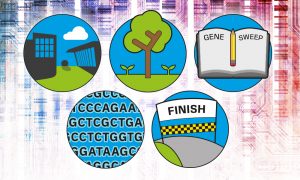
Today we celebrate the 20th anniversary of the first draft of the entire human genome.
SCIENCE & TECHNOLOGY2020
sciencescience-technology
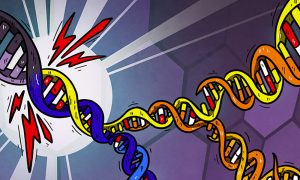
DNA damage caused by chemical mutagens is not repaired immediately and can create more genetic diversity in tumours.
SCIENCE & TECHNOLOGY2020
sciencescience-technology

EMBL scientists have performed a large-scale analysis of over 4700 SARS-CoV-2 genome sequences. They found that many of the most interesting changes in the SARS-CoV-2 genome that have been reported so far are likely to be technical artefacts, rather than biological mutations.
SCIENCE & TECHNOLOGY2020
sciencescience-technology

EMBL scientists will contribute to the new German COVID-19 OMICS Initiative to study the biological mechanisms contributing to coronavirus infections. EMBL group leaders Jan Korbel and Oliver Stegle, who is also affiliated with the DKFZ Heidelberg, will coordinate the set-up of IT infrastructures…
SCIENCE & TECHNOLOGY2020
sciencescience-technology

DNA mutations are caused by a combination of DNA damage and repair, shows study by EMBL-EBI and collaborators.
SCIENCE & TECHNOLOGY2020
sciencescience-technology

Exploring the cancer genomics labyrinth
PEOPLE & PERSPECTIVES2019
people-perspectivesscience
Understanding how ageing works at a molecular level
SCIENCE & TECHNOLOGY2019
sciencescience-technology

The increasing importance of code in the biological sciences
SCIENCE & TECHNOLOGY2019
sciencescience-technology
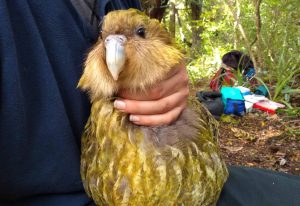
Using genomics to help endangered species
SCIENCE & TECHNOLOGY2019
sciencescience-technology

Building bonds between academia and industry
LAB MATTERS2019
lab-matters

Enhancing the world's bioinformatics infrastructure
LAB MATTERS2019
lab-matters

Federated data sharing will now be possible on an unprecedented scale
SCIENCE & TECHNOLOGY2019
sciencescience-technology

How EMBL scientists are using machine learning to advance biology
LAB MATTERSSCIENCE & TECHNOLOGY2018
lab-mattersscience-technology

Pharmaceutical company Sanofi strengthens drug targets discovery collaboration Open Targets
CONNECTIONSLAB MATTERS2018
connectionslab-matters
How embryonic stem cells develop into the germ line
SCIENCE & TECHNOLOGY2018
sciencescience-technology
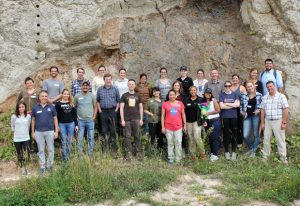
Meet the organisers of EMBO’s first course on molecular geobiology
SCIENCE & TECHNOLOGY2018
eventsscience-technology
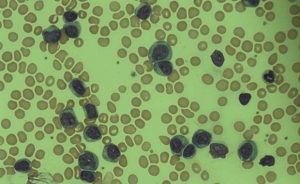
Acute myloid leukaemia risk could be detected years before diagnosis
SCIENCE & TECHNOLOGY2018
sciencescience-technology

What worms can tell us about cancer
SCIENCE & TECHNOLOGY2018
sciencescience-technology
Is depression in your genes?
SCIENCE & TECHNOLOGY2018
sciencescience-technology
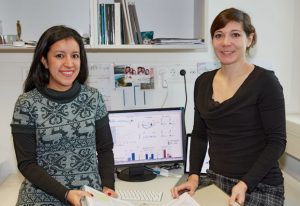
EMBL scientists unveil how 3D chromatin structure affects RNA splicing
SCIENCE & TECHNOLOGY2017
sciencescience-technology
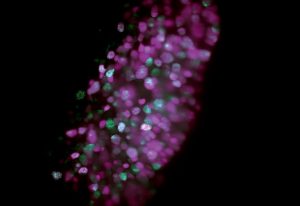
A summary of recent research highlights from EMBL
SCIENCE & TECHNOLOGY2017
sciencescience-technology

EMBL-EBI and collaborators engage schools in a large-scale genome decoding project
LAB MATTERS2017
eventslab-matters
Genetic data from a major cohort now distributed via EMBL-EBI
CONNECTIONS2017
connectionsscience
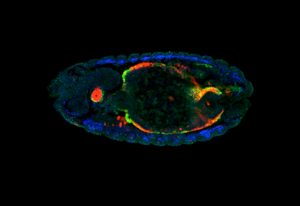
ERC grantee Eileen Furlong shares her vision for the next ten years
SCIENCE & TECHNOLOGY2017
sciencescience-technology

EMBL alumna Nicola Mulder reflects on her pan-African bioinformatics project and its impact
PEOPLE & PERSPECTIVES2017
alumnipeople-perspectives

EMBL scientists discovered that common mutations can change the shape of gene promoters
SCIENCE & TECHNOLOGY2017
sciencescience-technology
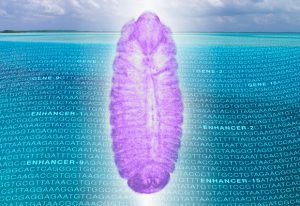
New mechanism revealed
SCIENCE & TECHNOLOGY2017
sciencescience-technology
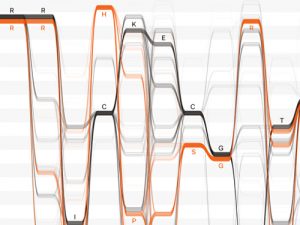
Where design meets bioinformatics, new scientific perspectives abound.
SCIENCE & TECHNOLOGY2016
sciencescience-technology
“Like getting hold of a microscope for the first time”
SCIENCE & TECHNOLOGY2016
sciencescience-technology
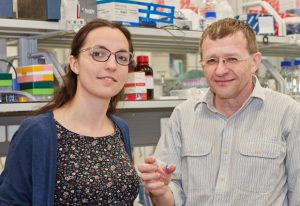
Collaborations shorten distance between EMBL Heidelberg, Germany, and CEITEC in Brno, Czech Republic
SCIENCE & TECHNOLOGY2016
sciencescience-technology
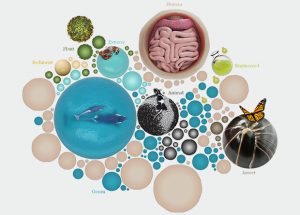
What's a microbiome? How on Earth do they work?
SCIENCE & TECHNOLOGY2016
sciencescience-technology

From shared interests at a conference to a surprising discovery
SCIENCE & TECHNOLOGY2016
sciencescience-technology
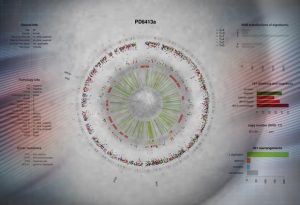
Largest-ever study of breast cancer genomes reveals new genes and mutations
SCIENCE & TECHNOLOGY2016
sciencescience-technology
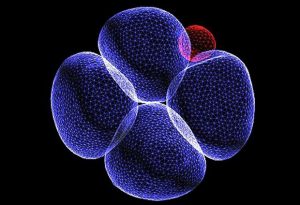
Subtle genetic differences destine cells to placenta or animal, very early in embryo development
SCIENCE & TECHNOLOGY2016
sciencescience-technology
![A new tool for single-cell genomics helps us better understand differences between T cell populations. [Illustration: Spencer Phillips, EMBL-EBI]](https://www.embl.org/news/wp-content/uploads/2016/03/TCell_news_EMBL-e1457443531496-300x205.jpg)
TraCeR: new method for studying T cells opens up opportunities to explore immune responses
SCIENCE & TECHNOLOGY2016
sciencescience-technology
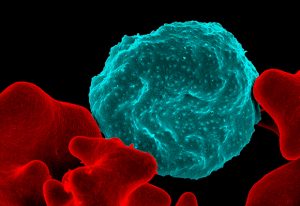
First detailed atlas of start points for genes expression in malaria-causing parasite
SCIENCE & TECHNOLOGY2016
sciencescience-technology
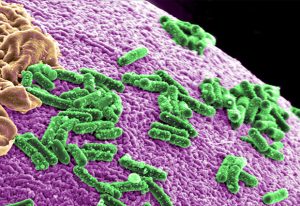
Commonly used diabetes drug metformin impacts gut bacteria more than disease itself
SCIENCE & TECHNOLOGY2015
sciencescience-technology

Connecting entrepreneurs and world leaders in genomics to address opportunities and challenges.
CONNECTIONS2015
connectionsevents
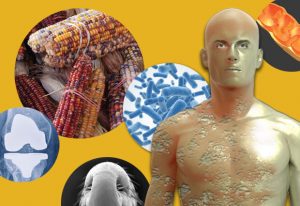
From jumping genes to organ transplants, the non-human features that make us human.
SCIENCE & TECHNOLOGY2015
sciencescience-technology
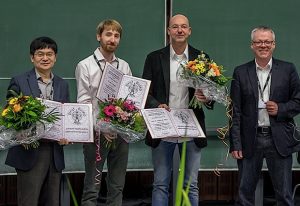
EMBL scientists regularly receive prestigious awards – meet the latest honourees.
EMBL ANNOUNCEMENTSLAB MATTERS2015
embl-announcementslab-matters
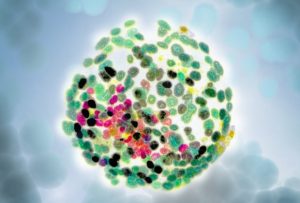
Embryology, genomics and bioinformatics combine to identify factors regulating mammalian pluripotency.
SCIENCE & TECHNOLOGY2015
sciencescience-technology

Evaluation of MinION™ sequencer finds performance and reliability consistently good.
SCIENCE & TECHNOLOGY2015
sciencescience-technology

Study of mouse embryonic stem cells reveals new genes involved in the stem-cell regulatory network.
SCIENCE & TECHNOLOGY2015
sciencescience-technology
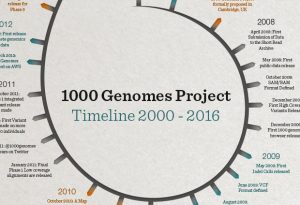
1000 Genomes Project pushed technologies and knowledge forward to understand what is 'normal' human genetic variation
SCIENCE & TECHNOLOGY2015
sciencescience-technology
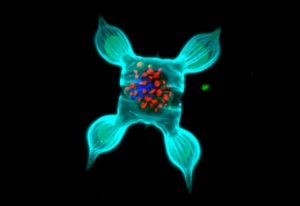
From the role of diatoms to how life evolved - scientists' pressing questions about life in the sea.
SCIENCE & TECHNOLOGY2015
sciencescience-technology

Missing a gene may not be a big deal – a conclusion from global catalogue of genetic changes.
SCIENCE & TECHNOLOGY2015
sciencescience-technology
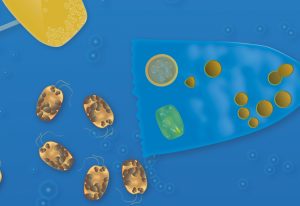
Insights from organisers of upcoming EMBO|EMBL Aquatic Microeukaryotes symposium.
CONNECTIONS2015
connectionsevents
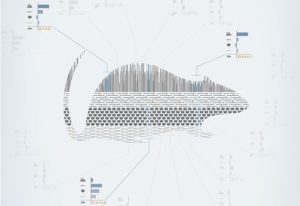
Multifaceted approach reveals how brain and liver age, helps explain why ageing brain loses plasticity.
SCIENCE & TECHNOLOGY2015
sciencescience-technology

EMBL scientists regularly receive prestigious awards – meet the latest honourees.
EMBL ANNOUNCEMENTSLAB MATTERS2015
embl-announcementslab-matters
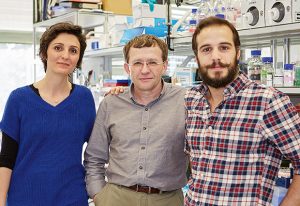
Behind the scenes of start-up Miroculus, developing a non-invasive test for early-stage disease.
SCIENCE & TECHNOLOGY2015
alumniscience-technology
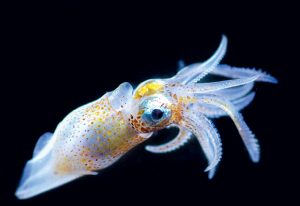
A journalist who spent six weeks aboard Tara reflects on the expedition’s extraordinary outcomes.
SCIENCE & TECHNOLOGY2015
sciencescience-technology
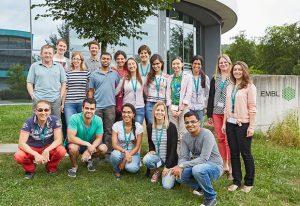
EMBL Core Facilities collaborate with French research programme Signalife to revive training visit.
CONNECTIONSLAB MATTERS2015
connectionslab-matters
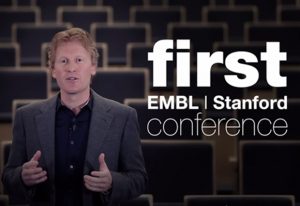
Leading scientists will gather in Heidelberg this November to discuss the potential of personalised health.
CONNECTIONS2015
connectionsevents
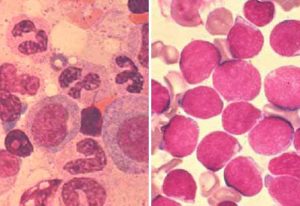
Multidisciplinary research provides clues to new treatments for deadly form of leukaemia in children
SCIENCE & TECHNOLOGY2015
sciencescience-technology
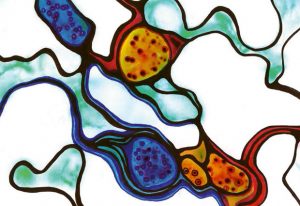
How T-cells are trained on what not to kill
SCIENCE & TECHNOLOGY2015
sciencescience-technology
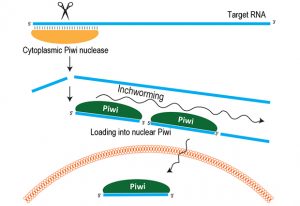
European team identify mechanism for producing piRNAs that silence jumping genes in germline cells.
SCIENCE & TECHNOLOGY2015
sciencescience-technology
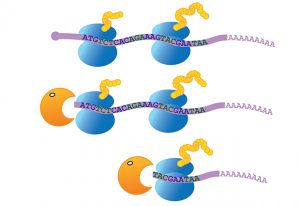
Decaying RNA molecules tell a story that could add more chapters to the study of ribosomes.
SCIENCE & TECHNOLOGY2015
sciencescience-technology
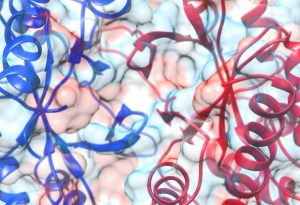
New research shows that some proteins domains can function even with big parts missing.
SCIENCE & TECHNOLOGY2015
sciencescience-technology
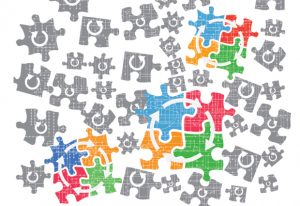
Cooperate or compete? Microbes show us that getting along is the better choice for communities.
SCIENCE & TECHNOLOGY2015
sciencescience-technology

Career insights from Riccardo Cortese, whose start-up is developing an Ebola vaccine candidate.
LAB MATTERS2015
alumnilab-matters
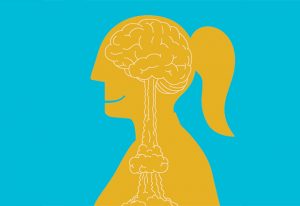
Radiocarbon studies are helping researchers shine light on how neurons stay stable yet adaptable.
SCIENCE & TECHNOLOGY2015
sciencescience-technology

Exploring the science and magic of Lil Bub – alumna launches project to sequence the ‘Lilbubome’.
LAB MATTERS2015
alumnilab-matters

New single-cell genomics techniques bring ‘omics to evolution and development research.
SCIENCE & TECHNOLOGY2015
sciencescience-technology
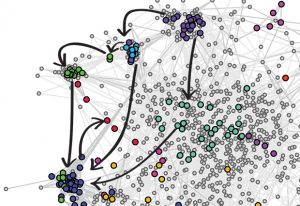
Go Team Genome! New method reveals genetic teamwork in drosophila genome.
SCIENCE & TECHNOLOGY2015
sciencescience-technology
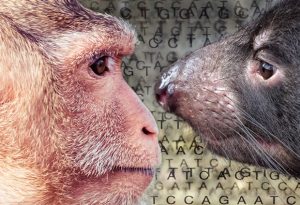
How repurposing non-coding elements in the genome gave rise to the great ‘mammalian radiation’.
SCIENCE & TECHNOLOGY2015
sciencescience-technology

EMBL scientists regularly receive prestigious awards – meet the latest honourees.
LAB MATTERS2015
lab-matters

New Christian Boulin Fellowship: 15 awards of up to €1500 for visitors to EMBL’s Core Facilities.
LAB MATTERS2015
lab-matters

Announcing winners of the John Kendrew Young Scientist Award, and inaugural Lennart Philipson Award.
LAB MATTERS2014
alumnilab-matters

Third round of calls for joint research projects between EMBL and Luxembourg in 2015
LAB MATTERS2014
lab-matters

Largest collection of helminth genomic data ever assembled, in new open-access WormBase ParaSite.
SCIENCE & TECHNOLOGY2014
sciencescience-technology

The important thing is forming good biological questions, says new group leader in Genome Biology.
PEOPLE & PERSPECTIVES2014
people-perspectivesscience

Whether it’s information or people, the art of connecting is key to new group leader Judith Zaugg
PEOPLE & PERSPECTIVES2014
people-perspectivesscience
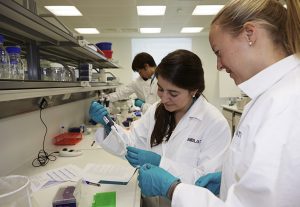
First series of training courses jointly organised by EMBL and Illumina is a resounding success.
CONNECTIONS2014
connectionsevents
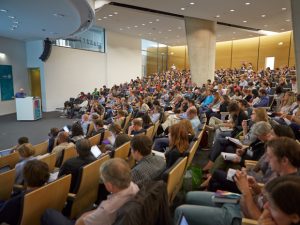
Experts from multiple fields come together to understand how the instructions in genes are read
SCIENCE & TECHNOLOGY2014
eventsscience-technology
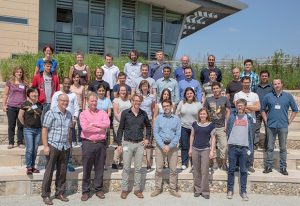
EMBL-EBI hosts successful first EMBO Practical Course in Genotype to Phenotype Mapping.
SCIENCE & TECHNOLOGY2014
eventsscience-technology

Gibbon genome gives insights into evolution of this singing, swinging, tree-dwelling ape.
SCIENCE & TECHNOLOGY2014
sciencescience-technology
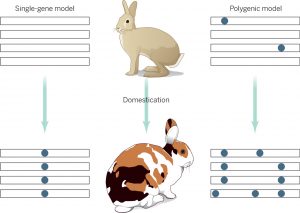
Bronwen Aken discusses what research into the rabbit genome reveals about animal domestication.
SCIENCE & TECHNOLOGY2014
sciencescience-technology
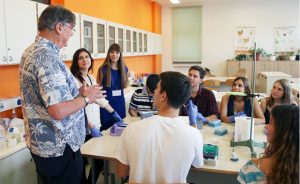
PhD students reap rewards and rave reviews as Summer School of Science organisers
CONNECTIONS2014
connectionsevents
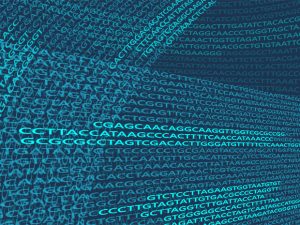
Ensembl has incorporated a vast amount of knowledge into a fully annotated reference human genome
SCIENCE & TECHNOLOGY2014
sciencescience-technology

New genomics API allows researchers to share anonymised genetic data seamlessly across platforms.
LAB MATTERS2014
lab-matters

Marmoset genome provides insights into chimerism: data available in Ensembl genome explorer
SCIENCE & TECHNOLOGY2014
sciencescience-technology
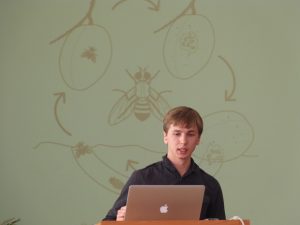
School ambassadors show next generation that scientists are more ‘role model’ than ‘mad professor’
LAB MATTERS2014
lab-matters

Scientists from EMBL's five sites reflect on the opportunities and challenges that might lie ahead
LAB MATTERS2014
lab-matters
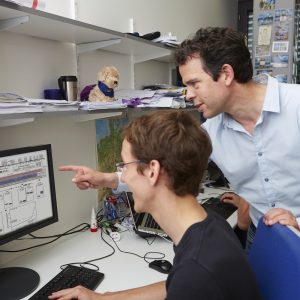
Enabling neighbours: intact genes can cause cancer when placed near "enhancing" regions of DNA
SCIENCE & TECHNOLOGY2014
sciencescience-technology
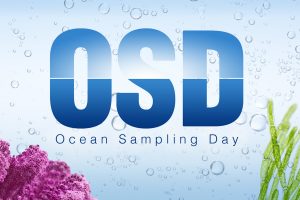
Data from first ever worldwide Ocean Sampling Day will be shared via EMBL-EBI resources this autumn.
SCIENCE & TECHNOLOGY2014
sciencescience-technology
Reference sheep genome, published by International Sheep Genomics Consortium, available in Ensembl
SCIENCE & TECHNOLOGY2014
sciencescience-technology
Tsetse fly genome sequenced; scientists hope to find new ways to control sleeping sickness.
SCIENCE & TECHNOLOGY2014
sciencescience-technology
In 1870 the German scientist Ernst Haeckel mapped the evolutionary relationships of plants and animals in the first ‘tree of life’. Since then scientists have continuously redrawn and expanded the tree adding microorganisms and using modern molecular data, yet, many parts of the tree…
SCIENCE & TECHNOLOGY2006
sciencescience-technology
No results found